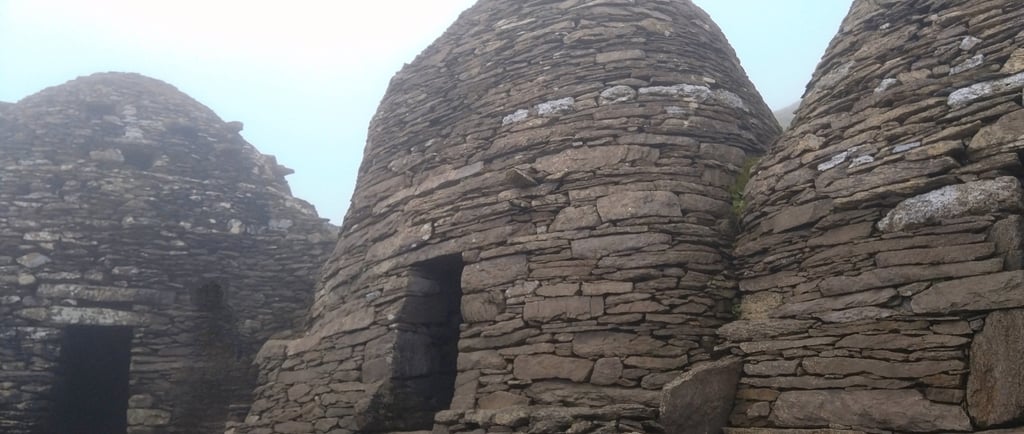The Cost of Convenience-And How to Combat it!
If you long for a simpler, more slow-paced life, this might be why.
PHILOSOPHYOBSERVATIONSOCIETYMINDFULNESSLEARNINGSIMPLIFIED LIVINGSELF-HELP
Heidi Hahe
3/12/20257 min read


In many ways, modern conveniences seem to be the backbone of our “advanced” modern society. All of the tasks that our ancestors toiled with for centuries have been taken over by robots of one nature or another over the past decades and now, with the looming promise of AI functionality, even some of our hobbies are being done for us.
Cars, dishwashers, washing machines, microwaves–electricity period. They’re all so convenient and I know I’ve heard the sentiment “don’t take my (fill in whatever convenience here) away!”, but the truth is that not very long ago, none of these things existed. No matter how necessary a washing machine feels to life now, it’s actually completely unnecessary. It’s just convenient.
Growing up in the late 20th and then the early 21st century, my life has always involved some kind of convenience or another, but as I’ve gotten older (and more philosophical), I’m beginning to understand that convenience is only necessary in a fast paced world–
But wait, the reality is that convenience came first. The world wasn’t as “fast paced” when the first mechanized washing machine was invented in 1851. The snowball effect of convenience that has led to our modern times was slow to start, but as it gained momentum, the pace of life also began to change.
The industrial revolution led to massive innovation, and is pinpointed as the time when we started to become “modern”, but at what cost? How often has convenience been presented to us humans as “innovation” and “progress” without acknowledging that there is a cost, a trade off, to these devices and machines. Where once a man would spend his days with the Earth and his family, growing food, now he would spend his days inside of a building, with back breaking labor, breathing in dust and waste and returning to his family dirty and broken, too tired to be present.
Or the immigrant children, working alongside them. Sure, industry was convenient; it produced stuff, and efficiently for the time, but was it really progress? Was the human condition improved by dirty, unecological efficiency?
I know I am biased in this rather negative opinion of convenience, but I am the pissed off philosopher after all, and I’ve felt this way about convenience for most of my life. Even as a child, I longed for a simpler, slower time; I didn’t want to be a doctor or an astronaut, I wanted to be a pioneer in a wagon train or even in the 1950’s with poodle skirts and saddle shoes and big, bubbly, pastel cars.
I still want that. I want to slow down, I want the world around me to slow down, at least enough for humans to observe their lives, to take stock of how they really feel about what’s going on around them. To detach from a world that is slowly, but surely making the human experience almost obsolete.
The perspective I have here isn’t meant to shame anyone for using modern conveniences, but rather bring to light the often overlooked downside of them.
Whether you use the "Shoelace express" or Uber, you’ll still getting there. From the microwave or from the oven, you still be able to eat. But if you can get there faster, you can do more, and when you do more, you start to need even more conveniences because you have less time. It’s self-perpetuating, but in our time, it’s certainly had help.
Men like Rockefeller and Ford irrevocably changed the world we live in through their pernicious and relentless pursuit of productivity and wealth. Their methods were efficient and their products were convenient, but they were the pioneers of a world that we are now stuck with and, frankly, I don’t think we like as much as we think. There’s always a trade off; magic always comes with a price.
And the trade off of convenience is a lack of satisfaction, among other things. We call it a “mental health crisis” and the talking heads can’t understand why so many young people struggle with depression and anxiety and simply not wanting to live anymore, but it isn’t happening out of the blue, for no reason. Abuse, of course, is still heartbreakingly rampant, but what do they have to look forward to in life? Pushing buttons? Poking a screen?
Life is, of course, what you choose to make of it, but life is, first and foremost, about experience. Taking the time to complete every step of a process with one’s own hands is what convenience steals from our lives. We used to get “the satisfaction of a job well done” and, honestly, I miss that.
Even as a young person, when I fell in love with the process of baking for the first time. I refused to use “box mixes” and I would get annoyed with any cookbook or recipe that instructed me to use any kind of pre-packaged mix. Apparently that had been completely acceptable to do in the mid-twentieth century when box mixes were the height of modernity and…convenience. I remember my eighteen-year-old jaw dropping when I watched a classmate pour a boxed brownie mix into a bowl for a “baking project” with 4H. Because that simply wasn’t baking, at least not to me.
Maybe it’s because I was raised by older parents (my father was over forty when I was born) or because I grew up “out in the country”, where life had a slower pace than my city-dwelling contemporaries, but this idea has been inherent in me for as long as I can remember.
It’s interesting how my insistence on doing things the long, inconvenient way has been positively reinforced consistently throughout my life. To my knowledge, I’ve never had someone dislike my baking when I’ve offered it to them. The cliche of love being the secret ingredient in good food has truth to it, but it isn’t the cook’s love for those who will eat the food that makes this true, it’s the cook’s love for cooking, the baker’s love for baking, that really makes the difference. They imbue love into their food with every twirl of the spoon or spatula because that is the very thing they love; taking separate and seemingly unrelated ingredients and mixing them together and heating them up to create something completely new. Delicious synergy.
Of course, as important as satisfaction is to mental health and experiencing a fulfilling life, it’s not even the most crucial piece of humanity that is lost in a world with an overabundance of convenience. What we really lose is knowledge.
All throughout my life I’ve heard adults discussing their lack of ability in the kitchen, some of whom expressed it as a badge of honor. Food and eating are foundations of being human, how could someone be proud of themselves for being incapable of feeding themselves? It’s something that has perplexed me for decades. My mother disliked being in the kitchen, but she was still more than capable of cooking well for our family.
Unfortunately, cooking is just the tip of the proverbial iceberg of lost knowledge that has happened over the centuries of chasing technology and convenience. The slow decline in human capability is most visually obvious in architecture across the world; from pyramid’s that have lasted for thousands of years to modern homes that can barely withstand high winds.
In 2017, my husband and I traveled to Ireland to celebrate our first year of marriage and during that trip we made the journey to a very special island; Skellig Michael. Not only is it a wild and gorgeous location for one of the Star Wars films, but it is also a UNESCO world heritage site, and rightfully so. On this isolated, tiny, mountainous island off the southwest coast of Ireland, there is a monastery that was well-established by the 8th century, but was founded as early as the 6th century. Despite its age, the beehive cells that monks built during that time are still standing and have only needed minimal maintenance over the centuries.
Of course, the monastery was operational for over 600 hundred years, so technology changed during its operational lifetime. On the island, alongside the well constructed beehive structures, made by simply wedging flat rocks together without the use of mortar, there was a chapel that had been built with the more modern mortar and it had fallen into ruin hundreds of years before my husband and I visited the other worldly haven of spiritual focus.
The convenience of mortar led to subpar construction when compared to the beehive cells from centuries prior, which utilized local materials and simple, physics based architecture that withstood the harsh climate of the island. Mortar meant that any stone was viable as a building material, no matter the size, shape or composition of the stone. It was convenient, but at the cost of the edifice’s longevity.
Convenience is neutral. I think it’s important to remember that. It does have its benefits, but that doesn’t mean that it is completely good. AI is convenient, but that AI summary at the top of the search results is actually a stolen amalgamation from the websites that you probably won’t even visit because of it. It’s convenient, but at a cost. For those website creators, the cost is literal because, without site traffic, their income from the site they spend time and attention to make will dwindle. The process of real research has already suffered from the genesis and pervasiveness of the internet, but there was still a process to finding information on passion-fuel, well-crafted websites.That is rapidly fading in the face of the convenience of AI’s rapid results.
Getting back into the routine of doing life’s processes by hand has made this cost of convenience much more obvious to me in the past couple years. I couldn’t afford to buy a washing machine or dryer, so I started to do our laundry by hand, in a plastic tote in the bathtub, while drying the clothes on lines tied between the rails on my apartment’s balcony. Oddly, I have found that doing my laundry by hand, and taking the time to hang each article, piece by piece, was almost a zen meditation in the fresh air of Colorado. It has surprisingly made me dread the task less and less. Now I don’t dread it at all.
Certain conveniences are wonderful, even considering their downsides, but they do have them and I think it’s important to realize that. Even a refrigerator, which is an incredibly useful invention, which most of us couldn’t live without, but it also allows us to eat foods that aren’t local or fresh. Modern food isn’t as good for us, or as tasty, as food that came off the plant or out of the ground the same day it is consumed. As useful as it is, the downside shouldn’t be ignored, like the unspoken and unacknowledged downsides to most of the conveniences I grew up with.
If this resonates with you, or you’ve always longed for a simpler time, consider making something from scratch on your next day off. While you're savoring your satisfying end product, take the time to ponder on the other enjoyable processes that are at risk of being lost to time and convenience. Then, perhaps, take it upon yourself to make sure that at least one piece of old knowledge is passed on to the next generation.
Photo: The Beehive Cells on Skellig Michael, Ireland. 2017.
